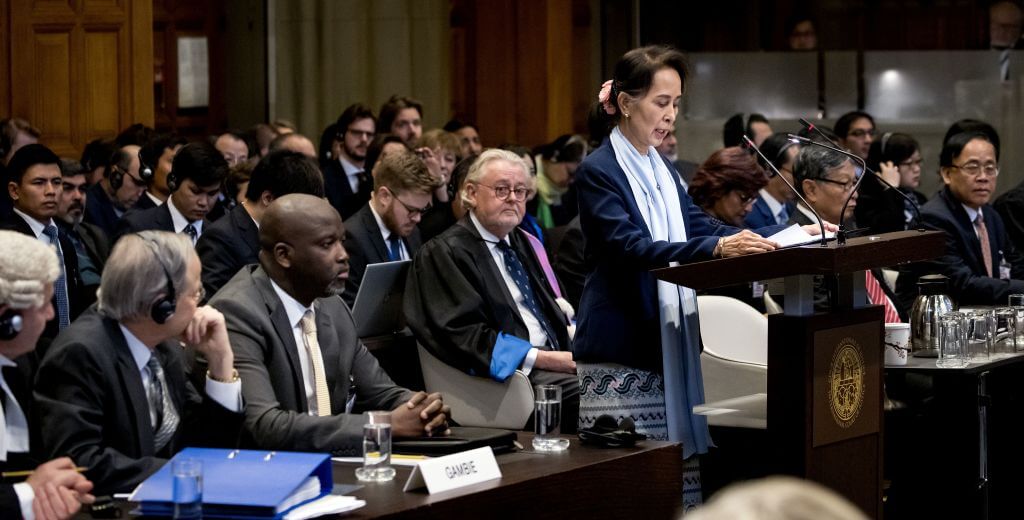The International Court of Justice ordered Myanmar to take immediate measures to protect its Rohingya community. In a unanimous ruling by the 17-judge panel, the court stated that the Rohingya community is facing a continuous threat and Myanmar must act to protect them. The court stated that Myanmar “must take all measures within its power to prevent all acts” prohibited under the 1948 Genocide Convention. The court has also ordered Myanmar to report back within four months. Also, the country will have to file a report every six months until a final ruling in the case.
The ruling marks a landmark first major legal victory for the Rohingyas. The measures imposed by the court are binding and not subject to appeal. The directions are ‘provisional measures’ until the final decision.
The ICJ case was filed in November last year by Muslim-majority African nation, the Gambia, over Myanmar's alleged violations of the 1948 Convention on the Prevention and Punishment of the Crime of Genocide. Myanmar asked the ICJ to remove the Rohingya case, citing the court's lack of jurisdiction. At the time, Myanmar's leader, Aung San Suu Kyi, denied all allegations of genocide and said that the military carried out legitimate counter-terrorism operations. She has since backtracked slightly, saying that although there might have been a discriminate amount of force used against the Rohingyas, this did not amount to genocide. She also urged the ICJ to dismiss the allegations of genocide and allow the country’s court to deal with the matter of human rights violations.
The court refused Myanmar’s argument and declared that there was prima facie evidence of the violations of the convention. The court concluded that the military campaign had been executed with “genocidal intent”.
In response to the ICJ decision yesterday, Myanmar’s Ministry of Foreign Affairs stated that the ruling presents ‘a distorted picture of the situation’.
Rohingya Muslims represent the largest community of Muslims in Myanmar. However, the state sees them as illegal immigrants from Bangladesh and denies them citizenship. It is estimated that around 730,000 Rohingyas have fled to Bangladesh since 2017 after the brutal military crackdown.
Image Source: The New Turkey

